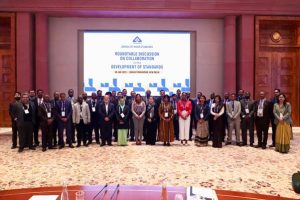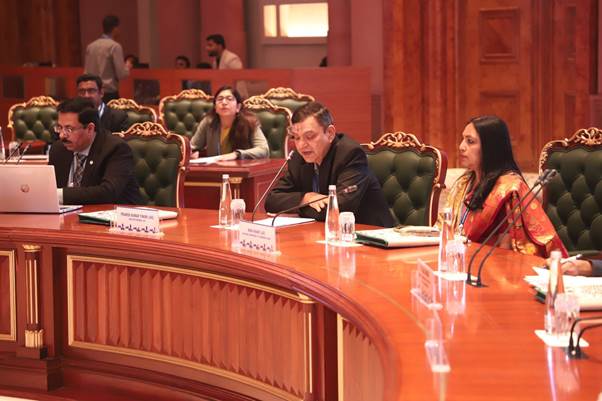New Delhi: The Bureau of Indian Standards (BIS) hosted a high-level roundtable discussion to foster collaboration in standardisation with African and Latin American nations on Monday. The event saw participation from Ambassadors, High Commissioners, and representatives of over 25 countries from these regions, along with officials from the Ministry of External Affairs and the Department of Consumer Affairs.
Nidhi Khare, Secretary, Department of Consumer Affairs, Government of India, and Pramod Kumar Tiwari, Director General, BIS, led the discussions alongside senior BIS officials.
The Consumer Affairs Secretary acknowledged BIS’s comprehensive standards ecosystem, which ensures product quality and safety while facilitating seamless trade across borders. She underscored the importance of harmonising standards to strengthen international trade and quality infrastructure.
Khare stated that BIS plays a crucial role in facilitating international trade by setting standards that ensure compatibility, safety, and quality. She emphasised India’s strong commitment to international standardisation and its active participation in ISO and IEC at both technical and governance levels. With seven decades of expertise in standardisation, BIS continues to lead in this domain.

She highlighted how BIS has been organising capacity-building programmes for developing countries under the ITEC programme. So far, 30 African nations and 10 Latin American countries have benefited from these initiatives. Additionally, BIS has established Memoranda of Understanding (MoUs) with these countries to facilitate knowledge-sharing and the exchange of best practices.
The Secretary reiterated BIS’s commitment to extending cooperation to any interested country, offering support on standardisation principles and sector-specific matters. The organisation has also developed comprehensive codes for the National Building Code (NBC) and the National Electrical Code (NEC), contributing to safe and sustainable infrastructure development.
For developing countries with limited resources and expertise, she stressed that there is no need to reinvent the wheel. Instead, they can adopt Indian standards through harmonisation, benefiting from the experience and expertise that BIS has cultivated.
All dignitaries present appreciated the efforts and support provided by BIS. The representatives encouraged more such programmes in collaboration with National Standards Bodies (NSBs). African and Latin American countries expressed keen interest in furthering mutual cooperation with BIS, strengthening their standardisation frameworks.


